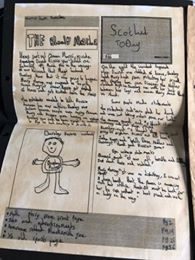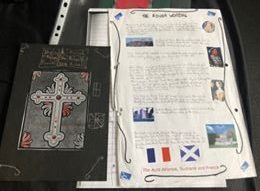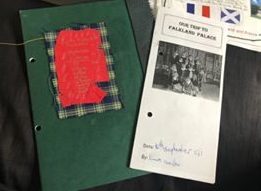I think interdisciplinary learning can be an effective tool in schools and can provide fantastic learning opportunities for children. For our ‘Developing Effective Teaching and Learning’ module, we have been asked to read 3 pieces of literature and discuss how that correlates to what our understanding of Interdisciplinary learning (IDL) is.
Through this reading, my positive attitude towards the approach was enhanced and I also gathered new knowledge regarding the topic that I previously wasn’t aware of. For example, I never realised the history behind IDL and cross curricular learning and the extent to which it has developed, and this surprised me as I was of the impression it was quite a new approach to learning.
I also did not realise that it has been through a tough journey to be significant in our curriculum. One of the major reports, the ‘Plowden Report’, talked about the disadvantages of separating subjects rigidly, however at the time many schools remained very teacher led, staying away from active learning and IDL. Even when told that they did not have to use rigid subject boundaries, they still opted to do it. This was due to the attention given to league tables.
I was surprised at how much politics impacted the attitudes towards IDL and depending on whoever was in charge at the time, correlated to how much it was used in schools. Attitudes towards IDL have changed dramatically in recent times and it has become more prevalent nowadays especially through Curriculum for Excellence. This reading has increased my understanding of how interdisciplinary learning can be an important learning experience during primary school and can really allow them to make connections between subject boundaries. The examples of literature I have read have strengthened my belief that this type of learning can be more engaging and stimulating for children and really lead to greater child autonomy and control over their learning. There is a key importance for teachers to make the IDL learning relevant to children. This involves teachers improving their knowledge of the children in their classroom, including their interests and hobbies for example. Implementing this into lessons can of course increase engagement and motivation and create a willingness to learn.
My own understanding of the key areas of good interdisciplinary learning have been improved and I have a deeper understanding of what teachers must do to enhance the experience children receive. The teachers must be confident and competent on the subjects they are teaching and IDL requires significant planning beforehand to provide good positive learning. The learning intentions must be clear and discussed with the children. This could even involve getting children participating in the process of creating the learning intentions. It is vital that there is a reason for IDL and it is not just done because the teacher feels they have to. In order for the learning to be meaningful, there must be new learning and knowledge involved and to do this, it must be enjoyable, but provide a challenge for pupils, which links directly to the Curriculum for Excellence concept of ‘Challenge and Enjoyment’. As with every subject area, there must be progression being shown clearly throughout learning. One of the biggest areas of importance when it comes to IDL is that it must provide opportunities for children to apply their knowledge and learning from subject areas in relevant real life situations. This truly shows how much learning has been done.
A key piece of information I was able to take from the reading by Barnes was that the teacher shouldn’t be just a facilitator and if there is an opportunity to use the children’s questions and answers and turn them into positive learning opportunities to develop their understanding, this should be grabbed by both hands. This is something I hope to transfer to my teaching in the future.
There are of course crucial issues which I have noticed while reading, and these have included the lack of time. Teachers struggle to give children a balanced experience of all the subject areas and adding IDL to the equation can put more stress and pressure on teachers, especially due to the planning which is required. I have discovered, through reading, that this is an issue that has been around for a while as a balanced curriculum was usually not given to children because of time restraints and the prominence of testing in schools and inspections which were given priority. A way to help reduce planning stress and also benefit children’s learning would be getting them fully involved in the process of planning and allowing them to think about their next steps. There is the chance that some children may also learn better in ways that would not work well alongside an IDL approach, so knowing your class and how they learn is of vital importance to teachers when thinking of implementing an IDL approach into your classroom.
My understanding of Cross Curricular Learning and IDL has definitely improved as I did not know that there were various different types of Cross Curricular learning, not just IDL. There are many different approaches to Cross Curricular Learning and they have different aims and strategies that can provide diverse experiences and have differing impacts on children’s learning. Each approach has varying effectiveness, but that may depend the situation, such as the type of pupils, teacher’s attitude and teaching methods etc.
In general, my understanding correlates to the reading I have undertaken, but I now feel as if I have more of a grasp and deeper understanding of what IDL can bring to children’s learning but also know what is important to think about to ensure children receive the best possible learning experience. I would love to implement some IDL in future placements and my career as a teacher as I believe it can really create motivating and stimulating experiences for children to take control of their learning. If used and planned correctly, it can be a powerful tool for learning.





